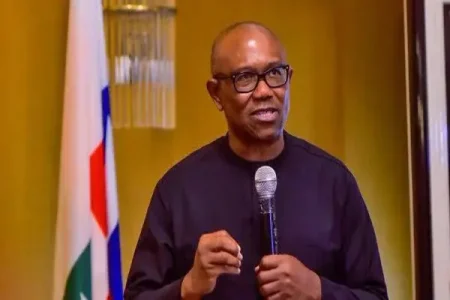
Peter Obi blames Nigeria's fuel scarcity on the Tinubu administration's ineptitude, calling for transparency from the NNPCL. He highlights conflicting reports on the company's finances and urges citizens to hold the government accountable for its actions.
Former presidential candidate Peter Obi has expressed strong criticism of the Tinubu-led administration, attributing Nigeria's current fuel scarcity crisis to governmental ineptitude. In a post shared on his X handle on September 3, Obi highlighted the conflicting reports from the Nigerian National Petroleum Company Limited (NNPCL) regarding its revenue and debt, asserting that these discrepancies have left Nigerians in the dark about the state of the nation's fuel supply.
Obi urged citizens to demand transparency from the government, particularly from critical agencies like the NNPCL, which he claims operates under a veil of secrecy. He pointed to the ongoing struggles of the $20 billion Dangote Refinery and other modular refineries to secure crude oil supplies, as well as NNPCL's search for foreign operators for its refineries, as further evidence of the current administration's "gross incompetence."
In a series of tweets, Obi called for accountability, emphasizing that the Petroleum Industry Act mandates transparency from NNPCL. He stated, “We should not stand idly by while this government violates our laws,” and insisted that the people must uncover the truth and hold those responsible accountable.
Reactions from Nigerians on social media echoed Obi's sentiments. Many called for the dismissal of NNPCL's management, with comments highlighting the perceived corruption and inefficiency within the agency. Users expressed frustration over the lack of clarity regarding NNPCL's operations and urged for public accountability, suggesting legal action to force transparency. The ongoing debate underscores a growing demand for governmental accountability in Nigeria amid the ongoing fuel crisis, leaving many citizens struggling with the consequences of fuel scarcity.




